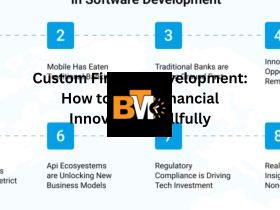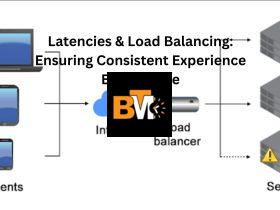Cutting costs in healthcare is a big challenge for organizations facing rising expenses and tight margins. Providers are working hard to balance patient care with staying financially stable, and many are discovering that medical billing automation is a great solution. Automation simplifies the billing process by reducing errors and speeding up reimbursements. It helps healthcare providers manage their finances more efficiently and saves them a lot of money.
The High Cost of Manual Billing
Manual medical billing can be a real headache. Every part of the process—whether it’s coding, submitting claims, or dealing with denials—requires a lot of attention. The trouble with this traditional approach is that it takes forever and is prone to mistakes. For billing departments, that means spending extra time fixing errors. And if you’re a company managing billing for multiple healthcare providers, those issues can pile up fast—missed claims, delayed payments, and higher admin costs, all of which eat into your profits.
Why Manual Processes Lead to Revenue Leakage
Manual billing can be such a hassle—tiny mistakes like typos, coding errors, or missed unpaid bills can really add up and cost you a lot. For example, one healthcare organization was dealing with around 15% of their claims getting delayed or denied because of simple coding mistakes. But after switching to automation, things got so much better, and they saw a significant improvement in their cash flow.
Even small errors can add up with manual billing. Automation helps ensure that billing information is always handled accurately and efficiently.
The Role of AI in Medical Billing Automation
The rise of artificial intelligence (AI) in healthcare has opened the door to more intelligent, more efficient billing processes. AI-driven medical billing automation uses machine learning algorithms and natural language processing to streamline workflows, reduce manual intervention, and enhance accuracy. Whether identifying potential coding errors before claims are submitted or automating denial follow-up procedures, AI is helping healthcare providers maximize revenue and minimize waste.
Real-Time Claim Processing and Reduced Denials
One of the great things about AI in billing is how it speeds everything up. Instead of waiting around for payments after services are delivered, AI can process claims in real-time, which means faster reimbursements. The automation helps ensure claims are submitted correctly the first time, cutting down on denials. And if a claim does get flagged, the system quickly fixes it according to the payer’s rules, so it can be resubmitted and paid without delay.
Take a mid-sized healthcare provider that began using AI for their billing. Within a year, they saw a 30% drop in claim denials. This not only saved them millions but also made life so much easier for their billing team by cutting out a lot of the boring admin work.
Accelerating the Payment Cycle
The old way of handling medical billing can be a real drag. Claims have to go through a long process of submission, review, and approval, which leads to frustrating delays. This slows down payments and throws off the cash flow for healthcare organizations. But with medical billing automation, things move much faster. From generating claims to receiving payments, the entire process speeds up, helping payments come in sooner and keeping revenue more consistent.
Improved Cash Flow and Financial Stability
With medical billing automation, payments come in much quicker, helping to stabilize a healthcare organization’s finances. Hospitals and clinics that used to wait months for insurance reimbursements are now seeing payments processed much faster. This boost in financial stability means they can invest more in patient care and cutting-edge technology.
Take one healthcare practice, for example. Before they automated their billing, they constantly struggled with long payment delays, which made it hard to keep everything running smoothly. But once they switched to an automated system, they cut their payment times almost in half. With better cash flow, they found it much easier to stay flexible and even had room to grow.
For more on how automation enhances billing operations across the industry, visit medical billing companies leveraging AI to transform their revenue cycles.
Reducing Administrative Costs
Automation isn’t just about speeding up the payment process; it’s also about cutting administrative costs. Healthcare organizations often spend a large portion of their budgets on labor-intensive billing and claims management tasks. By implementing AI-driven medical billing automation, these organizations can significantly reduce the need for manual labor and redirect resources to other areas of the practice.
Saving on Labor While Enhancing Productivity
Automating billing processes reduces the need for large billing departments, allowing healthcare organizations to operate with leaner teams. This doesn’t mean job losses, but rather that employees can be reallocated to more strategic roles that enhance patient care and organizational performance.
One hospital adopted medical billing automation, reducing its billing staff by 25%. The freed employees were then reassigned to roles where they could interact more with patients. This change made the hospital more efficient and led to higher patient satisfaction due to the improved level of service.
Scaling for Growth with Automation
As healthcare organizations expand, so too do their administrative burdens. A growing patient base and increased services mean more claims to process, more data to manage, and more opportunities for errors. Manual billing processes simply cannot scale effectively to accommodate this growth. However, medical billing automation allows organizations to grow without the corresponding increase in administrative workload.
Future-Proofing Your Healthcare Business
Medical billing automation makes it easier for healthcare organizations to grow by handling more claims without needing to hire extra staff. This is especially helpful for billing companies with a variety of clients. With automation in place, they can scale up quickly while still keeping things accurate and efficient, avoiding the usual headaches that come with managing tons of paperwork.
One billing company that switched to AI-driven automation saw amazing results. They were able to process over 300,000 claims a year without adding more people to the team. By cutting down on costs and boosting efficiency, they expanded their client base and saw a big jump in revenue.
The Path to Financial Success in Healthcare
Medical billing automation is making a big difference in healthcare, bringing some amazing benefits like cutting costs, improving accuracy, and boosting efficiency and cash flow. AI-powered systems are really changing the game by speeding up billing, reducing denials, and lightening the administrative load for healthcare providers. The future of managing healthcare revenue is definitely automated.
Take a look at what medical billing automation has to offer and see how AI is shaking up the way billing gets done. It’s all about making operations smoother and setting the stage for financial success in healthcare. Plus, these tools are super easy to integrate into your organization!







Leave a Reply